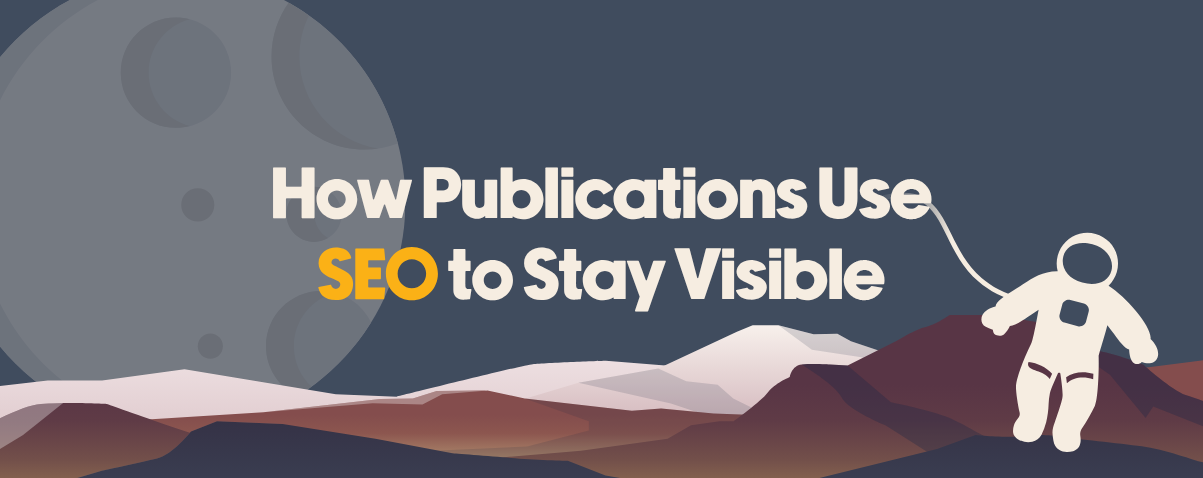Imagine pouring your time, resources and heart into a deep-dive article and then watching it vanish into digital oblivion because no one ever found it. In today’s content-saturated world SEO is the lifeline publications need to survive and thrive. For niche players in finance, SME funding and growth mastering SEO is not optional; it is the bridge between being visible and being forgotten. In this piece we’ll pull back the curtain on how savvy publishers embed SEO in every step from idea generation to authority building and performance tracking to turn content into consistent, compounding visibility.
Why SEO Matters for Publications
In today’s digital publishing landscape, SEO (search engine optimisation) is one of the most powerful tools for publications. With so many articles published daily, visibility in search results can determine whether content reaches a wide audience or gets buried. SEO helps articles remain discoverable over time, long after their initial launch.
Keyword Research & Editorial Planning
Many publications frame their editorial calendars based on SEO insights. Ideation often begins with:
- High-volume and relevant keywords in their niche
- Long-tail search phrases that capture specific audience intent
- Trending topics that can yield quick visibility
By aligning content ideas with search demand, publications ensure their articles have a chance to rank from day one.
If you're diving deeper into content-level strategies, check out our guide: On-Page SEO Tips for Startups
On-Page Optimisation Fundamentals
After topic selection, optimising the article itself is vital. Key elements include:
- SEO-friendly headlines and title tags
- Meta descriptions that encourage clicks
- Structured subheadings (H2, H3) to break down content
- Internal linking to related articles
- Alt text for images, keyword usage, and clean URL slugs
For a more detailed on-page checklist, you might also refer to: SEO Checklist for Startups in 2025
Technical SEO & Site Health
Technical SEO ensures search engines can crawl, index, and serve content efficiently. Publications usually invest in:
- Fast page load times
- Mobile-friendly (responsive) design
- Clean site structure and logical hierarchy
- XML sitemaps, canonical tags, and schema markup
Our guide, SEO for Startups: A Guide to Technical SEO Audits, provides useful depth here.
Authority Building & Backlinks
Publications often benefit from strong backlink profiles — when credible external sites link to their content, those links act like “votes” of trust in search eyes. Some common strategies include:
- Original reporting and data that get cited by others
- Guest contributions or syndicated content
- Partner or outreach content collaborations
To explore this further, see our article: SEO for Startups: Best Ways to Build Backlinks
Evergreen vs. News Content
Many publications balance breaking news with long-lasting evergreen content (e.g. explainers, how-tos, glossaries). While news is timely and reactive, evergreen content continues to rank and attract organic traffic for months or years.
SEO as Part of a Multi-Channel Strategy
SEO rarely works in isolation. Publications typically combine SEO with:
- Social media promotion
- Email newsletters
- Paid push or content amplification
But SEO has an advantage: it compounds over time. Once content ranks well, it can keep delivering traffic without constant ongoing promotion.
Measuring SEO Success
To know whether SEO is working, publications monitor metrics such as:
- Organic traffic (visits from search)
- Keyword rankings and impressions
- Click-through rate (CTR) on SERPs
- Bounce rate, dwell time, and pages per session
- Number and quality of backlinks
Our article How to Measure SEO Success for Your Startup dives deeper into the metrics side.
Partner Publications & Ecosystem
It’s often useful to mention and link to related or partner publications in the same space. For example, FundingScoop is a UK-based publication focused on SME financing, grants, loans, equity, and growth-stage business insights. Visit their site for more context and finance-oriented coverage.
Conclusion
For publications, SEO is no longer optional, it’s integral. From editorial planning to technical foundations and authority building, the smartest publications embed SEO into every stage of their process. Over time, this approach yields sustained visibility, readership, and authority in a crowded digital environment.






.png)
.png)
.png)
.png)
.png)
.png)
.png)
.png)
.png)
.png)
.png)
.png)
.png)
.png)

.png)
.png)
.png)
.png)
.png)
.png)
.png)

.png)
%20(1).png)
.png)

.png)
.png)
.png)

.png)
.png)
.png)
.png)
.png)
.png)
.png)
.png)


.png)






